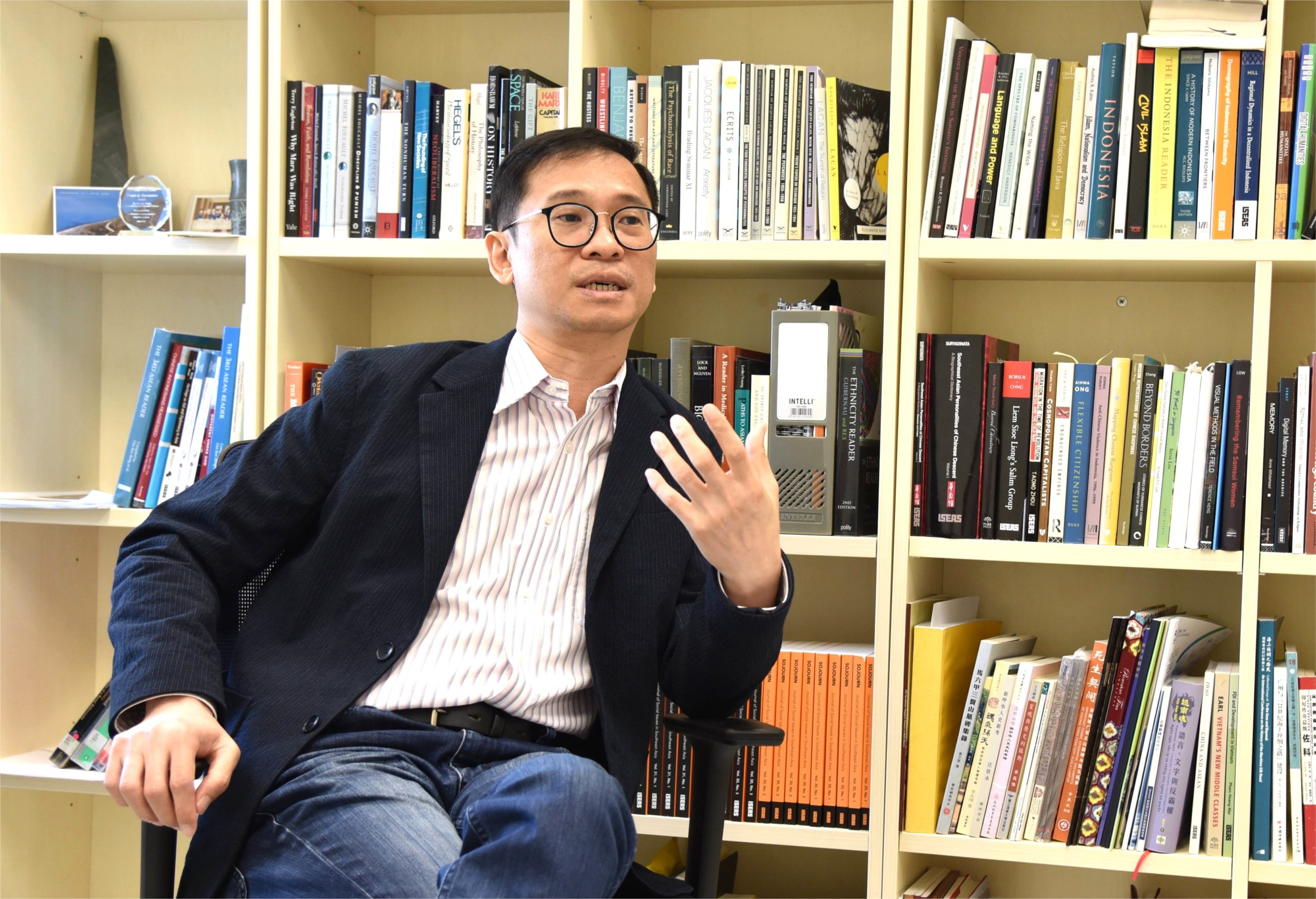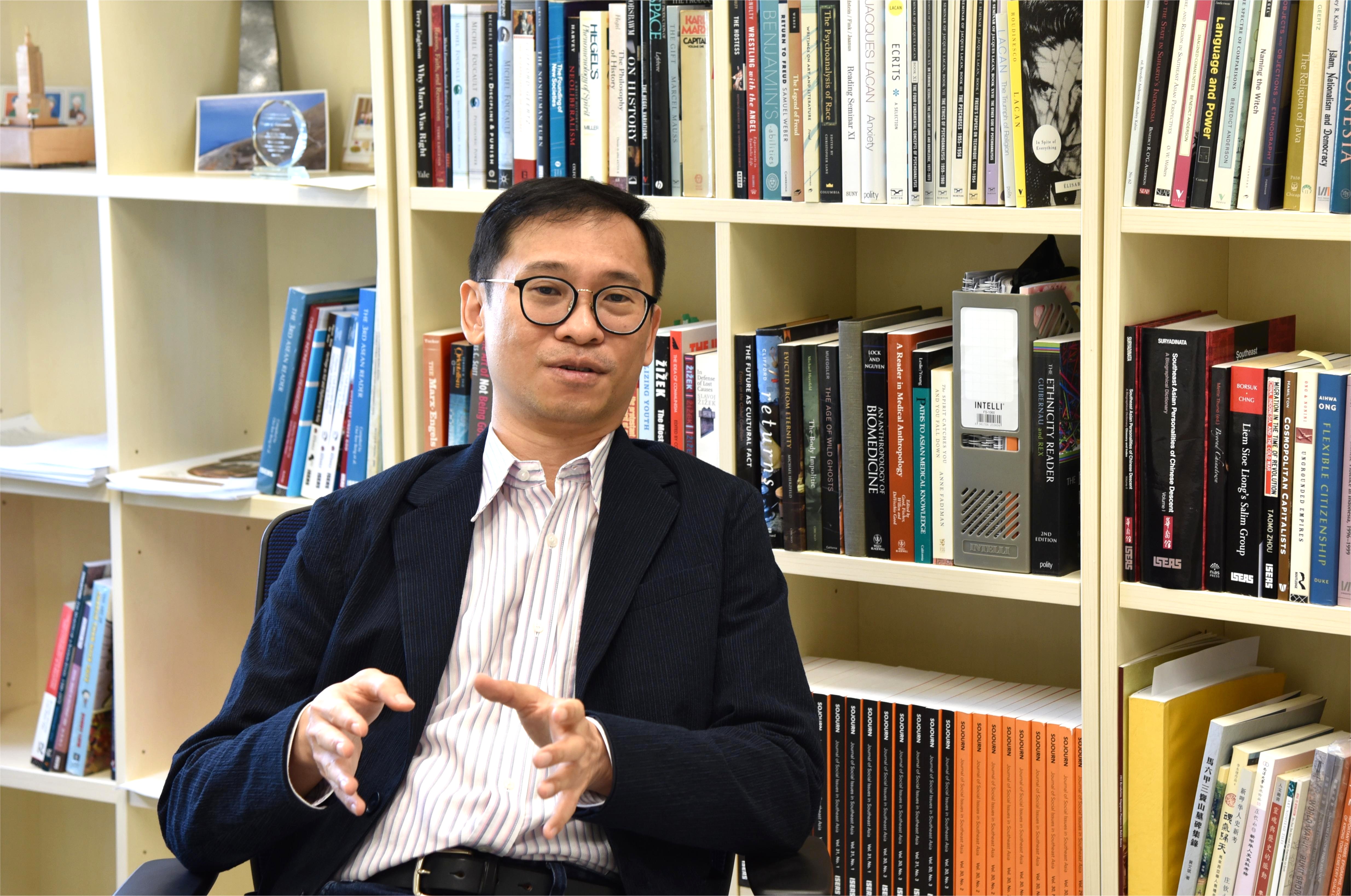Dr. HUI Yew-Foong, Associate Academic Vice President (Accreditation and Programme Development), said that Undergraduate Programmes at Shue Yan will develop in the direction of encompassing the digital domain in the future, and existing courses will be updated. Apart from that, the University will encourage the majority of departments to allocate 15 credits for free electives, so as to allow students to pursue a Minor Programme of their choice and benefit from the academic breadth offered by a “liberal arts education.”
In an interview with Shue Yan Newsletter, Dr. HUI said that the future direction of our programmes had been defined in the University Strategic Plan 2021-2025. Based on the evolving needs of students and markets, we will continue to review and update the contents of our programmes, giving focus to the skills that students need in the Digital Era. Therefore, the University will develop new courses related to the digital domain. “For the next five years, we will continue thinking about how we can equip students with Digital Era skills.”
He said that he would communicate with each department to make adjustments to programmes so that they meet the needs of the Digital Era. At the same time, he would review market needs with departments to ensure that the knowledge and skills that students learn at Shue Yan is in keeping with the times and changes in industries.
Minor Programmes
Concerning Minor Programmes, Dr. HUI said that in order for students to acquire knowledge beyond their own disciplines and to broaden their horizon, the University launched the Minor Programme in 2016, which allowed students to cultivate lateral thinking. “One of the aims of liberal arts education is to let students adopt cross-disciplinary modes of thinking, so that students may develop the ability to make connections among seemingly unrelated things. This is one source of creative thinking, and we hope to encourage such modes of thinking and ethos.”
Currently, due to the heavy course requirements of some programmes, or the requirements of related registration authorities or professional organizations, not all students are able to take Minor Programmes. On this matter, since he took up his appointment in January 2021, Dr. HUI has been working with various departments to make 15 credits available for free electives, so that students may take a Minor Programme or select courses from other departments.
At the same time, Dr. HUI had also discussed with certain departments on how they might strengthen their Minor Programmes so that the curriculum would be more appealing and increase students’ competitiveness in the job market. He said that this process could not be rushed, and feasible solutions would be found through frequent exchange of ideas.
Dr. HUI’s other duty involves academic accreditation. As each department has a better grasp of the development of their discipline and the demands of related industries, Dr. HUI’s role is to convey to them the bigger picture where the development of tertiary education is concerned. “My job requires me to be in frequent contact with the Hong Kong Council for Accreditation of Academic and Vocational Qualifications, which gives me a better understanding of accreditation standards that, in turn, I would convey to the departments.” As departments are busy with
the regular work of teaching, Dr. HUI also serves as a bridge to communicate policies and opportunities from the Education Bureau to departments.

Source: 50th Anniversary Special Issue
